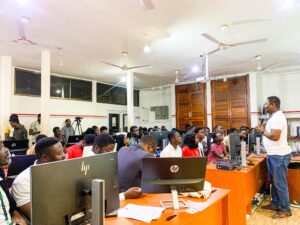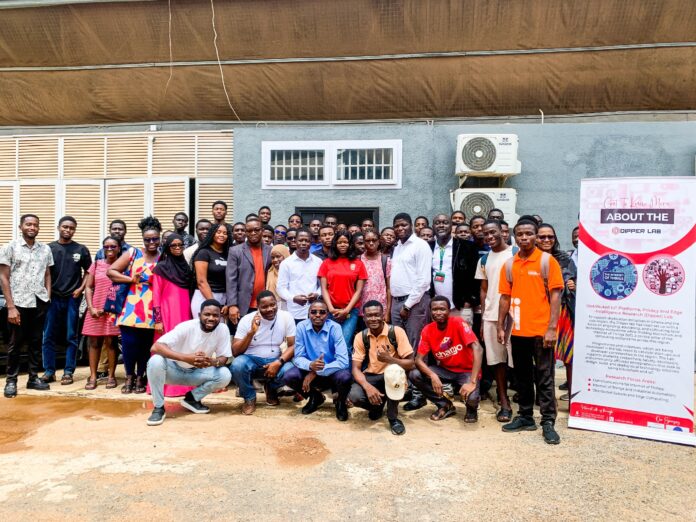DIPPER Lab has launched a six-week IoT Hardware Design and Fabrication Training Programme at Kwame Nkrumah University of Science and Technology (KNUST), aimed at equipping students with the skills to develop practical, scalable technology solutions.
The training focuses on developing low-cost tools for sectors such as agriculture and healthcare using Internet of Things (IoT) systems.
Participants will learn both technical and business skills to support the development of products that can be scaled beyond prototypes.

According to Dr. Eric Tutu Tchao, Scientific Director at DIPPER Lab, the initiative responds to the need for structured, design-based approaches in local innovation.
“Most of our projects fail within a few years because they are not built on sound engineering principles This programme is designed to change that,” he said.
He added that beyond technical skills, participants would be exposed to work ethics and business principles.
“Besides the technical skills, part of this training will also imbibe in you some ethics to shape you for not just developing IoT solutions, but also the ethics and some business principles.”
The initiative is supported by the UK’s Foreign, Commonwealth and Development Office (FCDO), Innovate UK, and Manchester Metropolitan University.

The six-week training also focuses on practical skills in embedded systems, PCB design, and 3D modeling using KiCad, Fusion 360, and microcontroller platforms like ESP32 and ESP8266.
Prof. E.A. Frimpong, Dean of the Faculty of Electrical and Computer Engineering, noted that Ghana often lags behind in adopting and creating new technologies.
“We tend to consume old technologies while others are busy building the future
“This training is an opportunity to change that by building capacity locally,” he noted.
He also addressed youth unemployment, linking it to limited involvement in technological development.
“If we don’t contribute to innovation, we miss out on the job creation that comes with it,” he added.
Dr. Selasi Agbemenu, Deputy Director of DIPPER Lab provided examples of past student-led innovations at the lab, including low-cost systems for detecting adulterated palm oil and internal software systems for university administration.
He emphasized the importance of applying knowledge to local problems and encouraged collaboration across disciplines.
Mr. Isaac Sesi, CEO of Sesi Technologies, an alumnus of the department and founder of Sesi Technologies, shared his journey from student to entrepreneur.
His work, which began as a student project, has since evolved into a company providing IoT solutions for agriculture.
“We didn’t have these kinds of training when I was in school
“Today you have more resources and as students you have to make use of them.” he adviced.
During the launch, Rev. Dr. Prince Odame and Dr. Enoch Bessah presented interventions the lab is implementing in healthcare and agriculture.
After the launch, participants attended an introductory session on IoT Hardware Development led by Mr. Samuel Kyei Agyemang, Mr. Lemuel Buabeng Siaw, and Mr. Nathaniel Klobodu.
They were also taken on a tour of DIPPER Lab’s facilities.



